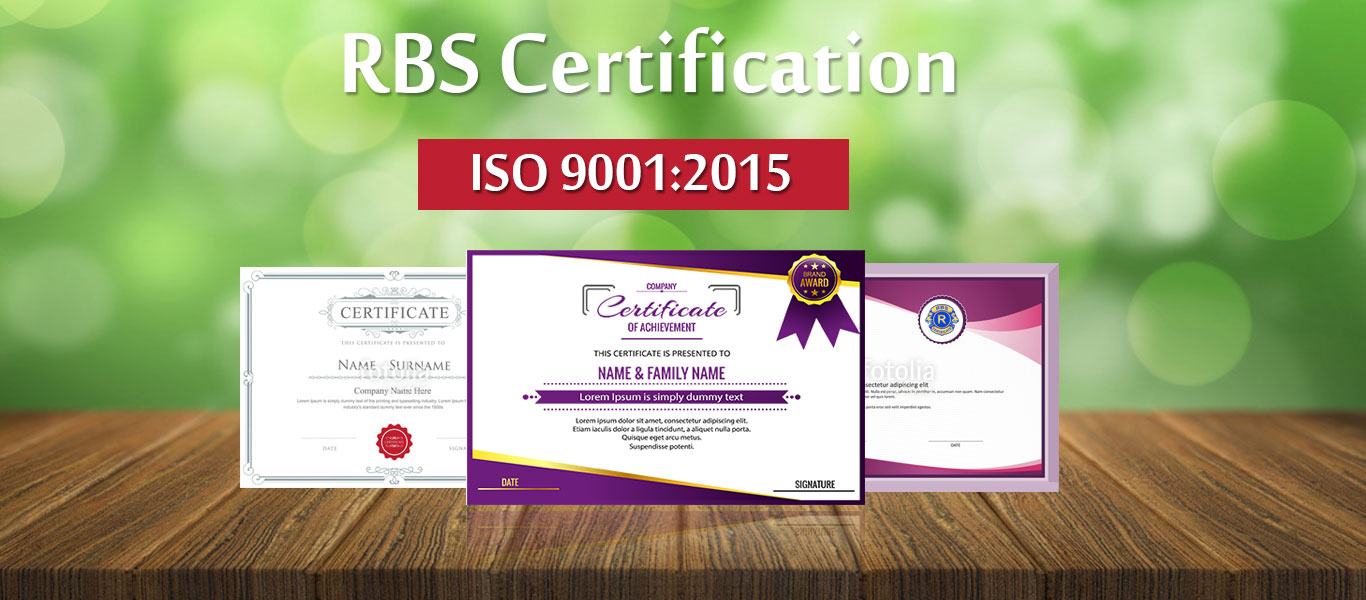Are you interested in developing your skills and advancing your career in the field of risk management? If so, obtaining RBS certification may be just what you need! RBS (Risk-Based Security) certification is a highly respected credential that demonstrates expertise in identifying, assessing and managing risks within an organization. In this blog post, we will explore who needs RBS certification, what the requirements are to obtain it and the benefits it can bring to your career. So let’s dive into the exciting world of risk-based security!
Table of Contents
What is RBS certification?
RBS certification is a credential that demonstrates an individual’s expertise in the field of risk management. This certification is based on the principles of risk-based security, which involves identifying and assessing risks, and implementing measures to manage them effectively.
The RBS certification program covers a wide range of topics including threat analysis, vulnerability assessment, incident response planning, and risk mitigation strategies. It is designed for individuals who work in security roles within organizations such as information technology (IT) departments or physical security teams.
RBS certification requires passing an exam that evaluates knowledge across various domains related to risk management. The exam tests candidates’ ability to apply concepts learned during training sessions in real-life situations.

Achieving RBS certification can open doors for professionals looking to advance their careers in the field of risk management. It reflects a high level of expertise and commitment towards ensuring organizational resilience against potential threats and vulnerabilities.
Obtaining RBS certification requires dedication, hard work, and commitment but can provide significant benefits for those seeking career advancement opportunities within the field of security systems management.
Who needs RBS certification?
RBS certification is a crucial requirement for individuals who work in the food service industry. The certification ensures that employees have an understanding of safe food handling practices and can prevent dangerous situations from occurring.
Food establishments, such as restaurants, catering companies, and grocery stores are required to have at least one employee with RBS certification on staff. This helps maintain compliance with local health regulations and demonstrates a commitment to providing safe and healthy food options for customers.
Aside from those working in the food industry, individuals looking to start their own business or pursue a career in food service may also benefit from obtaining RBS certification. It can improve their chances of being hired by demonstrating their knowledge of proper food handling techniques.
Anyone involved in the preparation or handling of potentially hazardous foods should consider getting RBS certified. It not only promotes public safety but also enhances personal skills and professional development opportunities within the field of culinary arts.
What are the requirements for RBS certification?
RBS certification is a credential that is recognized internationally and can be obtained by individuals seeking to advance their careers in risk management. To apply for the RBS certification, candidates need to satisfy certain requirements.
Firstly, applicants must have an undergraduate degree from an accredited institution or equivalent experience in the field of risk management. Candidates should also have at least three years of experience working within a relevant industry such as banking, insurance or consulting.
Secondly, candidates are required to pass the RBS exam which covers topics such as enterprise risk management frameworks and control systems. Applicants may choose to self-study or enroll in preparatory courses offered by third-party providers.
Candidates must agree to abide by the code of ethics set forth by The Institute of Risk Management (IRM) and complete 20 hours of continuing professional development each year to maintain their certification status.
In summary, obtaining RBS certification requires meeting educational and experiential requirements, passing a rigorous examination process covering various aspects of risk management framework controls and agreeing with ethical standards set forth by IRM.
How to obtain RBS certification?
Obtaining RBS certification is a crucial step in advancing your career in the field of risk management. To start, you need to ensure that you meet the eligibility requirements for taking the exam. You must have at least three years of experience working in risk management or related fields and possess a bachelor’s degree from an accredited institution.
Next, you need to prepare thoroughly for the exam. This involves reviewing relevant materials, such as textbooks and study guides, and practicing with sample questions to get a feel for what kinds of questions may be asked on the actual exam.
Once you’re ready to take the exam, register through an approved testing center. The test consists of multiple-choice questions covering topics like risk assessment methodologies and regulatory frameworks.
After successfully passing the exam, submit your application for certification along with any required documentation showing proof of education and work experience. Pay any necessary fees associated with obtaining your RBS certification.
By following these steps closely and remaining diligent throughout each stage of preparation and application process can help increase your chances of achieving RBS certification success.
The benefits of RBS certification
RBS certification offers numerous benefits to individuals and organizations. Firstly, it provides a competitive advantage in the job market as RBS is an essential requirement for many positions in different industries. It also demonstrates a higher level of dedication, knowledge, and skills related to risk management.
Secondly, being RBS certified can enhance your professional reputation among peers and clients. The certification indicates that you have passed a rigorous exam and met specific standards set by recognized industry bodies.
Thirdly, gaining RBS certification can lead to better pay opportunities and advancement within your organization or industry. In addition, it opens the doors to new career paths in risk management-related fields.

Obtaining RBS certification helps individuals develop their expertise on identifying risks early on before they turn into major threats. This skill is vital for any individual who wishes to create a safe work environment while reducing costs associated with accidents or errors.
Getting certified in Risk-Based Systems (RBS) has become increasingly necessary across various industries today. It serves as proof of competence while improving one’s professional reputation and opening up more significant career opportunities.
Conclusion
RBS certification is a crucial step for any business looking to establish its reliability and credibility in the global market. With the increasing demand for socially responsible practices, obtaining an RBS certification can provide businesses with a competitive edge by demonstrating their commitment to ethical and sustainable operations.
While the process of obtaining RBS certification may seem daunting, it is achievable with proper planning and execution. By fulfilling the necessary requirements such as conducting risk assessments, implementing policies that promote sustainable practices, and adopting transparency in reporting, businesses can ensure compliance with international standards.
Moreover, achieving RBS certification offers numerous benefits such as increased customer trust and loyalty, improved reputation among stakeholders including investors and employees, reduced operational costs through efficient resource management while contributing to environmental conservation efforts.
In summary,RBS certification serves as a powerful tool for companies seeking to demonstrate their social responsibility commitments while improving overall performance. As such,it is essential for businesses operating globally to prioritize sustainability principles in all areas of operation from sourcing raw materials to production processes,distribution channels,and disposal methods.



